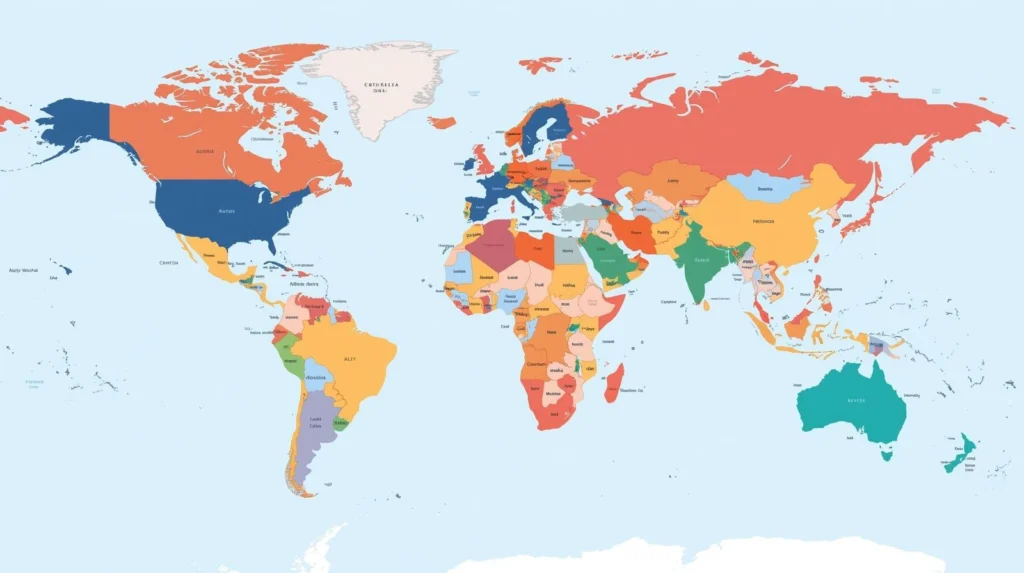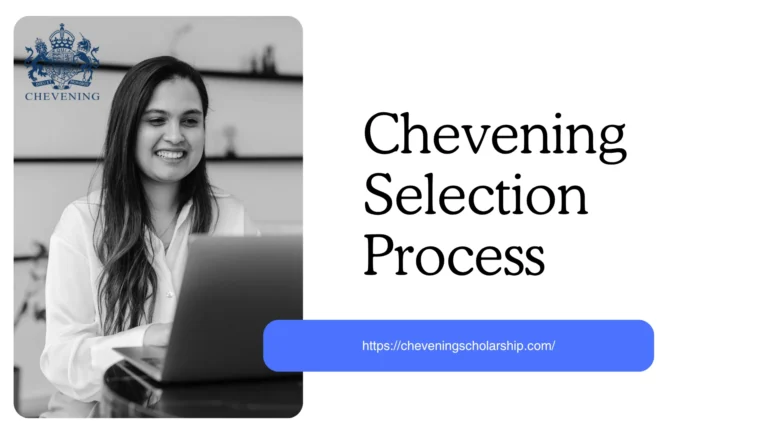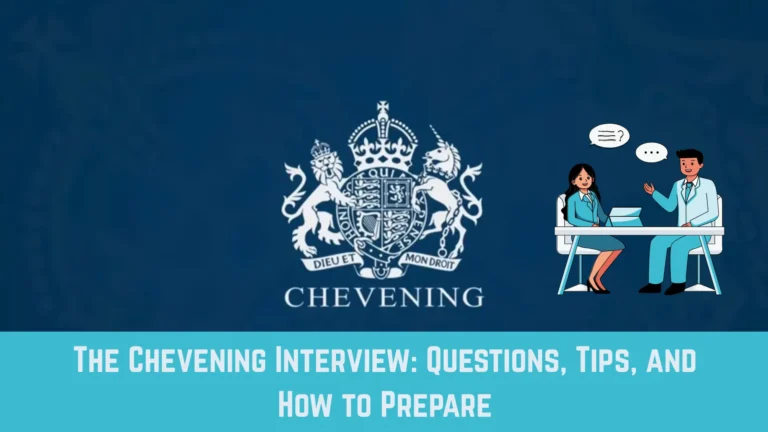Chevening Scholarship Countries: The Complete Global Guide for 2025
Is Your Country on the List? (Spoiler: It Probably Is)
Here’s something that’ll brighten your day: There’s a decent chance your country is eligible for one of the world’s most prestigious scholarships. I’m talking about the Chevening scholarship countries program—a UK government initiative that’s so generous, it makes other scholarship programs look stingy.
Picture this: Over 160 countries and territories are eligible. That’s not a typo. One hundred and sixty. From Afghanistan to Zimbabwe, from tiny Pacific islands to massive continental nations, the Chevening net is cast wide. Really wide.
But here’s where it gets interesting. Just because your country is eligible doesn’t mean all eligible countries are created equal. Some nations get 50+ scholarships annually. Others get one or two. Some have acceptance rates around 5%. Others hover closer to 1%. Your nationality isn’t just a checkbox on the application—it’s a strategic factor that can significantly impact your chances.
So whether you’re from Pakistan dreaming of studying at LSE, a Nigerian eager to attend Oxford, or a Brazilian hoping to crack into Cambridge, this guide will tell you everything you need to know about Chevening eligible countries, how allocations work, and most importantly, how to leverage your nationality strategically.
Let’s dive into the geography of opportunity.
Understanding the Chevening Global Footprint
Before we get into country specifics, let’s talk about what makes the Chevening scholarship country list so impressively diverse.
The Numbers That Matter
160+ countries and territories spanning every inhabited continent. That’s roughly 82% of all countries in the world. The scholarship deliberately excludes only a handful of nations—typically very wealthy countries where government-funded scholarships aren’t deemed necessary, or places where diplomatic relations make it complicated.
1,500+ scholarships awarded annually across this global network. Now, before you start calculating odds (1,500 divided by 160 equals about 9 scholarships per country), hold up. Distribution isn’t equal. Not even close.
The Three Tiers of Country Allocations
Through years of watching application patterns and talking to Chevening insiders, I’ve noticed countries fall into three rough categories:
Tier 1: High-Allocation Countries (20-60+ scholarships annually)
These are countries with strong historical UK ties, large populations, or strategic importance to British foreign policy:
- Pakistan
- India
- Indonesia
- Nigeria
- Bangladesh
- Kenya
- Egypt
- Mexico
- Thailand
- Philippines
Tier 2: Medium-Allocation Countries (5-20 scholarships annually)
Solid representation but not the massive numbers of Tier 1:
- Ghana
- Vietnam
- Malaysia
- Brazil
- Colombia
- Ethiopia
- Nepal
- Sri Lanka
- South Africa
- Zimbabwe
Tier 3: Low-Allocation Countries (1-5 scholarships annually)
Often smaller nations or places with fewer applicants:
- Caribbean nations
- Pacific Island countries
- Central Asian republics
- Some Eastern European countries
- Small African nations
Why this matters: Your strategy should vary dramatically based on your tier. High-allocation countries mean more spots but fiercer local competition. Low-allocation countries mean being one of very few selected, but if you’re excellent, you might stand out more easily.
The Regional Breakdown: Chevening Scholarship Countries by Continent
Let’s explore Chevening scholarships by country through a regional lens, because geography matters more than you think.
Chevening Scholarship Countries Asia: The Powerhouse Region
Chevening scholarship countries Asia accounts for roughly 40% of all annual awards. The UK has deep historical, economic, and educational ties with Asia, making it the scholarship’s most significant region.
Top Asian Recipients:
1. Pakistan (50+ annual scholarships)
Chevening scholarships Pakistan represents one of the largest national allocations globally. Why? Historical Commonwealth ties, large population of potential scholars, and strategic importance to UK foreign policy.
Pakistani advantage: Multiple scholarship categories including standard Chevening, FCDO-funded spots, and special partnerships. Pakistani applicants have genuinely strong odds compared to global averages.
Application tip: Competition among Pakistanis is intense. Differentiate yourself by choosing less obvious universities (not just Oxford/Cambridge/LSE) and demonstrating unique perspectives on Pakistan’s development challenges.
2. India (45+ annual scholarships)
Chevening scholarships India programs are massive, reflecting the enormous talent pool and UK-India educational partnerships.
Indian advantage: Despite huge application numbers (10,000+ annually), the large allocation means hundreds of Indian scholars have succeeded. The Chevening alumni network in India is incredibly strong and supportive.
Application reality: Indian applicants face perhaps the toughest competition globally. You’re competing against graduates from IITs, top management institutes, and accomplished professionals. Your application needs to be exceptional, not just good.
3. Bangladesh (30+ annual scholarships)
Chevening scholarships Bangladesh allocation reflects the country’s development priorities and Commonwealth membership.
Bangladeshi advantage: Strong focus on development-related fields. If your career goals align with Bangladesh’s national priorities (climate resilience, public health, governance), your chances improve significantly.
4. Indonesia (25+ annual scholarships)
Chevening scholarship Indonesia numbers have grown as UK-Indonesia relations strengthen.
Indonesian advantage: Less competition than India or Pakistan despite large population. Indonesian scholars often focus on governance, environmental management, and international relations.
5. Other Asian Countries:
- Chevening scholarship Vietnam: Growing allocation (15-20 scholarships)
- Chevening scholarship Malaysia: Steady allocation (15-20 scholarships)
- Chevening scholarship Thailand: Consistent numbers (20-25 scholarships)
- Chevening scholarship Nepal: Smaller but reliable (8-12 scholarships)
- Chevening scholarship Sri Lanka: Modest allocation (10-15 scholarships)
Regional insight: Asian applicants benefit from established alumni networks, numerous regional events, and high visibility within the Chevening ecosystem. The challenge? Competition is fierce because everyone knows about Chevening.
Chevening Scholarship Countries Africa: The Rising Giant
Chevening scholarship countries Africa is the second-largest regional bloc, reflecting the UK’s significant development and diplomatic interests across the continent.
Top African Recipients:
1. Nigeria (40+ annual scholarships)
Chevening scholarships Nigeria represents one of Africa’s largest allocations and globally significant numbers.
Nigerian advantage: Huge allocation relative to applicant numbers means Nigerian odds are better than many assume. The UK values Nigeria’s regional influence and economic potential.
Nigerian challenge: Internet connectivity and application infrastructure can be obstacles. Nigerian applicants should start early and ensure all technical requirements are sorted weeks before deadlines.
Application dates: Chevening scholarships Nigeria deadline typically aligns with the global deadline (early November), but prepare local documents (references, transcripts) months in advance.
2. Kenya (25+ annual scholarships)
Chevening scholarships Kenya programs are well-established with strong alumni networks.
Kenyan advantage: East Africa’s economic hub status means UK interest in Kenyan leaders. Strong tradition of Chevening scholars returning to influential positions.
3. South Africa (20+ annual scholarships)
Chevening scholarships South Africa allocation reflects the country’s regional importance.
South African advantage: Excellent universities mean strong academic preparation. However, this also means tougher local competition from UCT, Wits, and Stellenbosch graduates.
4. Ghana (18+ annual scholarships)
Chevening scholarships Ghana steadily grows, reflecting the country’s stable democracy and development progress.
Ghanaian advantage: Strong Commonwealth ties and excellent English proficiency rates mean Ghanaian applications tend to be very competitive.
5. Ethiopia (15+ annual scholarships)
Chevening scholarships Ethiopia numbers are substantial for East Africa’s most populous nation.
Ethiopian advantage: Focus on development sectors where Ethiopia has specific needs and UK has expertise.
6. Egypt (20+ annual scholarships)
Chevening scholarship Egypt programs are significant given Egypt’s regional influence.
Egyptian advantage: Strategic location and large educated population. Strong networks in policy, media, and business sectors.
7. Zimbabwe (8+ annual scholarships)
Chevening scholarship Zimbabwe maintains steady allocation despite economic challenges.
Zimbabwean advantage: Smaller applicant pool but historically strong academic standards. Zimbabwean scholars often excel once in UK.
Regional patterns: African applicants should emphasize development impact, demonstrate clear plans to return home, and highlight how UK education addresses specific African challenges. The “brain drain” concern is real—reassure committees you’re coming back.
Chevening Scholarship Countries Latin America: The Growing Frontier
Chevening scholarship countries Latin America represents expanding UK interest in a historically underrepresented region.
Top Latin American Recipients:
1. Mexico (20+ annual scholarships)
Chevening scholarships Mexico is the largest Latin American allocation.
Mexican advantage: Strong bilateral relations and growing economic ties. Mexican scholars often pursue business, policy, and international relations.
2. Brazil (18+ annual scholarships)
Chevening scholarships Brazil reflect the country’s size and regional importance.
Brazilian advantage: Less competition than you’d expect for a nation of 210 million people. Brazilian applications are growing but still manageable.
Brazilian challenge: Portuguese-speaking background means demonstrating English proficiency convincingly is crucial.
3. Colombia (12+ annual scholarships)
Chevening scholarship Colombia programs have grown as the country’s stability improved.
Colombian advantage: Focus on post-conflict development, governance, and peacebuilding aligns with UK development interests.
4. Other Latin American Countries:
- Chevening scholarship countries South America: Chile, Argentina, Peru, Ecuador all receive allocations (5-10 each)
- Chevening scholarships Caribbean: Various island nations receive smaller allocations (1-3 each)
- Central American countries: Guatemala, Honduras, El Salvador (2-5 each)
Regional insight: Latin American applicants face less competition than Asian or African counterparts but must work harder to demonstrate strong English skills and show awareness of UK education system’s distinctiveness from US models.
Chevening Scholarship Countries Middle East: The Strategic Region
Chevening scholarship countries Middle East allocation reflects complex diplomatic relationships and development priorities.
Key Middle Eastern Recipients:
Countries eligible for Middle East Chevening:
- Jordan (15+ scholarships)
- Lebanon (10+ scholarships)
- Palestine (8+ scholarships)
- Iraq (12+ scholarships)
- Yemen (varies based on security situation)
- Several Gulf states (limited numbers)
Regional advantage: UK has specific interests in Middle Eastern stability, governance, and development. Applications showing understanding of regional complexity and potential for positive impact score well.
Regional challenge: Security situations and diplomatic complications can affect allocations year-to-year. Check current eligibility annually.
Chevening Scholarship Countries Europe: The Smaller Slice
Chevening scholarship countries Europe represents a smaller percentage, primarily targeting Eastern European and Balkan nations.
Why fewer European scholarships? Many European countries are wealthy enough not to need development-focused scholarships, or have EU Erasmus+ programs serving similar purposes.
Eligible European regions:
- Western Balkans (Serbia, Bosnia, North Macedonia, Albania, Kosovo)
- Eastern Europe (Ukraine, Belarus, Moldova, Georgia, Armenia, Azerbaijan)
- Some Central Asian former Soviet republics
European advantage: Lower application numbers mean less competition. If you’re from an eligible European country, your odds are quite good.
The Big Question: How Many Countries Can Apply to Chevening?
People constantly ask: “How many countries can apply to Chevening?” The answer is technically 160+, but let’s clarify what this really means.
Countries Eligible for Chevening 2025
The countries eligible for Chevening 2025 list includes virtually every developing and middle-income nation. However, the official list changes slightly year-to-year based on:
- Diplomatic relationships
- Security situations
- Administrative capacity
- Historical application patterns
Countries typically NOT eligible:
- Very wealthy nations (USA has limited eligibility through special programs only)
- Nations without diplomatic relations with UK
- Countries under specific sanctions
Chevening scholarships US situation: Americans can apply only through the Marshall Scholarship (US equivalent) or specific Chevening partnerships. Chevening scholarships for UK nationals don’t exist—UK citizens aren’t eligible for Chevening itself, though they can access other domestic scholarships.
The Eligibility Map
A Chevening scholarships eligibility map would show:
- Green (High allocation): South Asia, West Africa, East Africa, Southeast Asia, parts of Latin America
- Yellow (Medium allocation): North Africa, Middle East, Eastern Europe, rest of Latin America
- Orange (Low allocation): Pacific Islands, Caribbean, Central Asia, some smaller nations
Country-Specific Application Strategies
Now let’s talk strategy. Chevening scholarship application by country should differ based on your specific national context.
If You’re From a High-Allocation Country
Your advantages:
- More spots available (obvious)
- Strong alumni networks for guidance
- Established application support infrastructure
- Universities and programs familiar with scholars from your country
Your challenges:
- Intense local competition (you’re competing against your countrymen first)
- Need to stand out among many qualified applicants
- Risk of “cookie-cutter” applications (everyone uses similar examples)
- Higher expectations from interview panels
Winning strategy:
1. Differentiate aggressively: If everyone from your country applies to Oxford PPE, consider Cambridge, Durham, or Edinburgh programs in your field.
2. Show unique perspective: Don’t just cite your country’s challenges—offer novel angles on addressing them.
3. Demonstrate specific UK value: Why UK specifically versus US, Australia, or Europe? Be precise.
4. Build standout profile: Leadership that goes beyond the typical “university society president” everyone lists.
5. Network strategically: Connect with alumni from less obvious universities, not just the famous ones.
If You’re From a Medium-Allocation Country
Your advantages:
- Manageable competition (not too intense, not too easy)
- Decent alumni support without oversaturation
- Flexibility in program choices
- Balance of recognition and uniqueness
Your challenges:
- Can’t coast on just being qualified—need strong application
- Less established support infrastructure than Tier 1 countries
- Need to demonstrate clear return-home commitment
- Regional representation expectations
Winning strategy:
1. Emphasize national context: Show deep understanding of your country’s specific challenges and opportunities.
2. Highlight regional perspective: Position yourself as someone who’ll influence your region, not just your country.
3. Build cross-sector narrative: Show how your field connects to broader development goals.
4. Choose programs strategically: Mix prestigious universities with programs that perfectly match your goals.
If You’re From a Low-Allocation Country
Your advantages:
- Less competition (might be one of 50-200 applicants for 1-3 spots)
- Geographic diversity value (committees want representation from everywhere)
- Standout factor (you’re memorable simply by being from an underrepresented nation)
- Lower expectations in some ways (they know your context may be different)
Your challenges:
- Very few spots (one mistake can sink your application)
- Less alumni support (smaller network to learn from)
- Need to prove your country/background won’t disadvantage you in UK
- Potential language or application infrastructure obstacles
Winning strategy:
1. Perfect your application: With only 1-2 spots, every detail matters. Zero typos. Zero inconsistencies.
2. Emphasize uniqueness: Your perspective is inherently rare—lean into it.
3. Show UK readiness: Demonstrate you can thrive in UK academic environment despite potentially different educational background.
4. Build compelling return story: Explain precisely how you’ll apply UK education in your specific national context.
5. Connect with the alumni: Even if there are only 5-10 alumni from your country total, find them on LinkedIn and learn from their experiences.
Special Country Considerations
Chevening Scholarship Pakistan Deadline and Process
Since Pakistan is one of the largest recipients, let’s detail the Chevening scholarship Pakistan deadline and process:
Timeline specifics:
- Applications open: August
- Deadline: Early November (exact date announced annually)
- Interviews: February-April
- Results: June-July
Pakistani-specific tips:
1. Address security questions proactively: If you’re applying from regions with security concerns, address this diplomatically in your application (how you’ll manage it, your commitment to returning).
2. Show cross-regional perspective: Pakistan’s regional importance means showing understanding of South Asian dynamics strengthens applications.
3. Leverage alumni network: Pakistan has one of the strongest Chevening alumni associations. Attend events, connect on LinkedIn, ask for advice.
4. Consider diverse universities: While Oxbridge is tempting, universities like Edinburgh, Durham, Warwick, and Bristol are excellent and potentially less competitive for Pakistani applicants.
Chevening Scholarships for African Countries: Development Focus
Chevening scholarships for African countries particularly emphasizes development impact. Here’s what works:
Strong application angles for African applicants:
✓ Climate and agriculture: Africa’s vulnerability to climate change makes this compelling ✓ Public health systems: Post-pandemic, health systems strengthening is priority ✓ Governance and anti-corruption: UK values supporting transparent governance ✓ Technology for development: Digital solutions for African challenges ✓ Education access: Improving educational outcomes across the continent
What to avoid: ✗ Generic “I want to help Africa” statements (too broad) ✗ Suggesting you might not return home (brain drain concerns) ✗ Focusing only on studying without clear application plan ✗ Ignoring local innovation (show you know solutions exist locally, UK will enhance them)
Chevening Scholarships for International Students from Conflict/Post-Conflict Zones
If you’re from countries experiencing conflict or instability:
Your challenge: Committees worry about:
- Whether you can safely return
- Whether education will be applicable in current situation
- Whether you’ll seek asylum instead of returning
Your strategy: 1. Address reality honestly: Don’t pretend challenges don’t exist.
2. Show long-term thinking: Even if returning immediately is complicated, demonstrate commitment to your country’s future.
3. Highlight resilience: Your ability to thrive despite challenges is an asset.
4. Find relevant programs: Choose courses that specifically address post-conflict development, stabilization, or reconstruction.
Chevening Scholarships 160 Countries: Why So Many?
Let’s talk about the Chevening scholarships 160 countries reach. Why cast such a wide net?
The UK Foreign Policy Angle
Chevening isn’t just charity—it’s strategic:
1. Soft power: Creating positive UK connections with future leaders globally
2. Influence: Chevening alumni often reach positions where they make decisions affecting UK interests
3. Trade and business: Alumni who know UK are more likely to pursue UK partnerships
4. Cultural understanding: Building mutual understanding between UK and rest of world
5. Development impact: Supporting developing nations aligns with UK development objectives
The Scholar Benefit
From your perspective as a scholar:
1. Global network: 55,000+ alumni across 160 countries means connections everywhere
2. Regional leadership: Being one of few scholars from your country makes you a leader in your national alumni community
3. Unique perspective: Exposure to scholars from so many backgrounds enriches your experience
4. Career opportunities: Access to jobs and opportunities across multiple countries
How to Check Country Eligibility for Chevening
Wondering about Chevening country eligibility for your specific situation? Here’s the definitive process:
Official Resources
1. Chevening Website (chevening.org):
- Most reliable source
- Updated annually (usually July-August)
- Lists all eligible countries for current application cycle
2. Chevening Country Pages:
- Each eligible country has dedicated page
- Lists specific requirements, deadlines, local contacts
- Shows number of scholarships available (sometimes)
3. British Council/Embassy:
- Local British Council offices have details
- Can answer country-specific questions
- Often host pre-application workshops
What to Check
Before investing time in application:
□ Your country is explicitly listed as eligible for current year
□ You meet citizenship requirements (usually must be citizen of eligible country, not just resident)
□ No current or recent UK study (usually can’t be in UK when applying)
□ Meet return home requirements (must be willing to return for minimum 2 years)
□ Check for special provisions (some countries have additional requirements or opportunities)
Frequently Asked Questions About Chevening Countries
Can I apply from a country I’m not a citizen of?
No. Chevening eligibility is based on citizenship, not residence. If you’re Pakistani living in UAE, you apply as Pakistani applicant, not UAE applicant. Your citizenship determines your eligibility and which country’s allocation you fall under.
Exception: Dual citizens can sometimes choose which citizenship to apply under (check specific rules).
What if my country isn’t on the list?
Options if your country isn’t Chevening-eligible:
- Check Commonwealth Scholarships: Different eligibility criteria
- Look at GREAT Scholarships: Different country list
- University scholarships: Many UK universities offer their own international scholarships
- Check annually: Eligibility lists can change
Do all 160 countries get the same number of scholarships?
Absolutely not. As detailed earlier, allocations vary enormously:
- Largest countries: 50-60 scholarships
- Medium countries: 10-20 scholarships
- Smallest allocations: 1-2 scholarships
Does my country’s allocation affect my chances?
Yes and no.
Yes: More scholarships = more opportunities (mathematical fact)
No: What really matters is strength of your application relative to other applicants from your country
Think of it this way: Would you rather compete for 1 spot among 50 applicants or 50 spots among 10,000 applicants? The math isn’t straightforward.
Can I apply if I’m from an eligible country but currently living in UK?
Usually no. Most Chevening scholarships require you to be in your home country when applying and not currently studying in UK. Exceptions exist for specific circumstances—check official rules for your country.
Chevening Eligibility Criteria by Country: Key Variations
While most requirements are universal, Chevening scholarships eligibility criteria by country can have specific variations:
Universal Requirements
Applies to all countries:
- Citizenship of eligible country
- Undergraduate degree (UK 2:1 equivalent)
- 2+ years work experience (2,800 hours)
- English proficiency (IELTS 6.5+ or equivalent)
- Not currently in UK
- Willing to return home for 2 years minimum
Country-Specific Variations
Some countries have:
Additional requirements:
- Specific sector focus (e.g., some countries prioritize STEM)
- Age restrictions (rare but exists in some locations)
- Additional essays or interviews
- Partnership scholarships with specific criteria
Relaxed requirements:
- Some countries accept lower work experience in certain circumstances
- Flexible English requirements for specific contexts
- Alternative qualification pathways
Always check your country’s specific page on Chevening website for details.
Country-Wise Application Tips: The Insider’s Guide
Here are Chevening scholarship country-wise application tips based on patterns I’ve observed:
South Asian Applicants (India, Pakistan, Bangladesh, Nepal, Sri Lanka)
What works:
- Demonstrating genuine development impact (not just career advancement)
- Showing cross-regional perspective (South Asian cooperation)
- Choosing courses beyond the obvious (not everyone needs to do PPE or Economics)
- Highlighting unique leadership in competitive environment
What doesn’t:
- Generic applications that could come from anyone
- Focusing only on personal benefit
- Underestimating the competition
- Copying successful essays from previous years (they’ve seen them all)
Southeast Asian Applicants (Indonesia, Vietnam, Thailand, Malaysia, Philippines)
What works:
- Emphasizing regional economic development
- ASEAN integration perspectives
- Technology and innovation focus
- Environmental and sustainability angles
What doesn’t:
- Ignoring regional context (Southeast Asia as bloc matters)
- Purely academic focus without practical application
- Weak English proficiency documentation
- Generic motivations
African Applicants
What works:
- Concrete development plans (be specific about implementation)
- Understanding of governance challenges and solutions
- Regional (not just national) perspective
- Demonstrating resilience and resourcefulness
What doesn’t:
- Vague “help my country” statements
- Suggesting uncertainty about returning home
- Ignoring local context and innovations
- Focusing only on problems without solutions
Latin American Applicants
What works:
- Unique regional perspective (Latin America is underrepresented)
- Strong English demonstration (overcome assumption of weakness)
- Clear understanding of UK vs US education differences
- Regional integration themes (Latin American cooperation)
What doesn’t:
- Weak English proficiency
- Unclear about why UK specifically (not just “any scholarship”)
- Comparing unfavorably to US programs
- Generic international development angles
Middle Eastern Applicants
What works:
- Nuanced understanding of regional complexity
- Practical, implementable goals
- Bridging perspectives (East-West understanding)
- Sector expertise (energy, policy, development)
What doesn’t:
- Politically naive statements
- Ignoring context of UK-Middle East relations
- Overly idealistic goals without practical grounding
- Weak demonstration of return plans
The Complete Chevening Eligible Countries List 2025
Here’s a comprehensive regional breakdown of Chevening eligible countries list (subject to annual updates):
Asia-Pacific (50+ countries)
South Asia: Afghanistan, Bangladesh, Bhutan, India, Maldives, Nepal, Pakistan, Sri Lanka
Southeast Asia: Brunei, Cambodia, Indonesia, Laos, Malaysia, Myanmar, Philippines, Singapore, Thailand, Timor-Leste, Vietnam
East Asia: Mongolia
Pacific: Fiji, Kiribati, Marshall Islands, Micronesia, Nauru, Palau, Papua New Guinea, Samoa, Solomon Islands, Tonga, Tuvalu, Vanuatu
Central Asia: Kazakhstan, Kyrgyzstan, Tajikistan, Turkmenistan, Uzbekistan
Africa (50+ countries)
East Africa: Burundi, Comoros, Djibouti, Eritrea, Ethiopia, Kenya, Madagascar, Malawi, Mauritius, Mozambique, Rwanda, Seychelles, Somalia, South Sudan, Tanzania, Uganda, Zambia, Zimbabwe
West Africa: Benin, Burkina Faso, Cabo Verde, Cameroon, Chad, Côte d’Ivoire, Gambia, Ghana, Guinea, Guinea-Bissau, Liberia, Mali, Mauritania, Niger, Nigeria, Senegal, Sierra Leone, Togo
Southern Africa: Angola, Botswana, Eswatini, Lesotho, Namibia, South Africa
North Africa: Algeria, Egypt, Libya, Morocco, Sudan, Tunisia
Americas (30+ countries)
South America: Argentina, Bolivia, Brazil, Chile, Colombia, Ecuador, Guyana, Paraguay, Peru, Suriname, Uruguay, Venezuela
Central America: Belize, Costa Rica, El Salvador, Guatemala, Honduras, Mexico, Nicaragua, Panama
Caribbean: Antigua and Barbuda, Bahamas, Barbados, Cuba, Dominica, Dominican Republic, Grenada, Haiti, Jamaica, Saint Kitts and Nevis, Saint Lucia, Saint Vincent and the Grenadines, Trinidad and Tobago
Middle East & North Africa (15+ countries)
Iraq, Jordan, Lebanon, Palestine, Syria, Yemen, plus North African countries listed above
Europe & Eurasia (20+ countries)
Eastern Europe: Albania, Armenia, Azerbaijan, Belarus, Bosnia and Herzegovina, Georgia, Kosovo, Moldova, Montenegro, North Macedonia, Serbia, Ukraine
Note: This list is indicative. Always check the official Chevening website for the current year’s definitive list.
Your Action Plan: Leveraging Your Country’s Position
Whether you’re from a high-allocation powerhouse like Pakistan or a small island nation with 1-2 scholarships, here’s your strategy:
Step 1: Understand Your National Context (This Week)
□ Find your country on official Chevening website □ Identify approximate number of scholarships (if published) □ Join your country’s Chevening applicant groups (Facebook, WhatsApp) □ Connect with 3-5 alumni from your country on LinkedIn □ Read successful essays from compatriots (if available)
Step 2: Assess Your Competition (Next Two Weeks)
□ Research who typically wins from your country (sectors, universities, backgrounds) □ Identify gaps in representation you could fill □ Understand common application mistakes from your country □ Determine how you differentiate from typical applicants
Step 3: Build Your Country-Specific Strategy (One Month Out)
□ Choose universities strategically for your national context □ Frame your goals using country-specific challenges □ Emphasize unique aspects of your national perspective □ Prepare for country-specific interview questions □ Connect with UK universities’ international offices
Step 4: Perfect Your Application (Application Period)
□ Tailor essays to your national context □ Demonstrate deep country knowledge □ Show clear return-home plans □ Address any country-specific concerns □ Have compatriot alumni review your application
Final Thoughts: Your Country Is Your Advantage
Here’s what I want you to take away: Your nationality isn’t a limitation—it’s a strategic asset.
Yes, applicants from some countries face tougher odds than others. Yes, some nations get more scholarships. Yes, competition varies wildly by country.
But here’s the thing: The Chevening selection committee isn’t just looking for the “best” students in some abstract global sense. They’re looking for future leaders from specific countries who’ll use UK education to create specific impacts in specific contexts.
Your Kenyan perspective on climate adaptation is valuable precisely because you’re Kenyan. Your Indonesian insights into digital governance matter because you’re Indonesian. Your Colombian understanding of post-conflict development resonates because you’re Colombian.
The scholarship isn’t about being better than everyone else globally—it’s about being the best applicant you can be from your specific country with your specific context and your specific vision.
The Chevening scholarship countries program succeeds because it embraces diversity—geographic, cultural, sectoral, and experiential. Your country, your background, your context—these aren’t obstacles to overcome. They’re the very reasons Chevening wants you.
So check that eligibility list. Find your country. Understand your national context. Then build an application that shows exactly why a future leader from your nation deserves this opportunity.
The UK is waiting. Your country’s spot has your name on it. Now go claim it.
Ready to start your Chevening journey? Visit chevening.org, find your country page, and take the first step today. Your future self—studying at a world-class UK university on a fully-funded scholarship—is counting on you.

| Country | Region | Approx. Annual Scholarships | Application Difficulty |
|---|---|---|---|
| Pakistan | South Asia | 50-60 | High |
| India | South Asia | 45-55 | Very High |
| Nigeria | West Africa | 40-50 | High |
| Indonesia | Southeast Asia | 25-35 | Medium-High |
| Bangladesh | South Asia | 30-35 | High |
| Kenya | East Africa | 25-30 | Medium-High |
| Egypt | North Africa | 20-25 | Medium |
| Mexico | Latin America | 20-25 | Medium |
| Thailand | Southeast Asia | 20-25 | Medium |
| Ghana | West Africa | 18-22 | Medium |
| South Africa | Southern Africa | 18-22 | Medium-High |
| Brazil | South America | 15-20 | Medium |
| Philippines | Southeast Asia | 15-20 | Medium |
| Ethiopia | East Africa | 15-18 | Medium |
| Vietnam | Southeast Asia | 15-18 | Medium |
| Malaysia | Southeast Asia | 15-18 | Medium |
| Jordan | Middle East | 15-18 | Medium |
| Colombia | South America | 12-15 | Medium |
| Nepal | South Asia | 10-15 | Medium |
| Sri Lanka | South Asia | 10-15 | Medium |
Note: Numbers are approximate and vary annually based on applications and funding
Advanced Strategies: Gaming the Geography
Let’s get tactical. Here are some advanced Chevening scholarship application by country strategies that most applicants never consider:
Strategy 1: The “Second-Tier University” Advantage
If you’re from a high-competition country (India, Pakistan, Nigeria), here’s a counterintuitive approach:
The conventional wisdom: Everyone applies to Oxford, Cambridge, LSE, Imperial, UCL.
The smart play: Consider excellent but less famous universities where:
- Acceptance rates are higher
- Your application stands out more
- Faculty have more time for students
- Living costs are lower (stretching your stipend further)
- You’re not competing with 50 other compatriots for attention
Top-tier universities beyond the obvious five:
- Edinburgh (outstanding reputation, beautiful city, strong in many fields)
- Durham (collegiate system like Oxbridge, excellent academics)
- Warwick (business and economics powerhouse)
- Manchester (massive research output, great facilities)
- Bristol (strong across sciences and humanities)
- Glasgow (excellent value, rich history)
- Sheffield (strong in engineering and social sciences)
- Nottingham (good all-rounder with excellent support)
Real talk: A distinction from Edinburgh is more valuable than a pass from Oxford. Choose the university where you’ll actually excel, not just the one with the fanciest name.
Strategy 2: The Regional Specialization Play
This works particularly well for applicants from medium and low-allocation countries.
The concept: Position yourself as THE expert on a specific regional challenge that UK universities are researching.
Example 1: You’re from a Pacific Island nation. Instead of generic “climate change” focus, specialize in “small island developing states climate adaptation financing” and choose universities with specific Pacific research centers.
Example 2: You’re from Central Asia. Rather than broad “governance,” focus on “resource nationalism in post-Soviet economies” and target programs with Central Asian expertise.
Why this works:
- You’re not competing broadly—you’re competing in a niche
- Universities value specialists who’ll contribute to specific research
- Your application becomes memorable
- Alumni and faculty networks become more relevant
Strategy 3: The “Underrepresented Sector” Gambit
Most Chevening applicants come from:
- Government/civil service
- NGOs and development sector
- Academia
- Large corporations
Fewer applicants come from:
- Social enterprises and startups
- Creative industries (film, media, arts)
- Agriculture and rural development (practical, not academic)
- Traditional/indigenous knowledge sectors
- Faith-based organizations
The opportunity: If your background is less typical, lean into it. Show how your unique sector perspective adds value to the cohort.
Example: You run a social enterprise using traditional craft methods. Your Chevening goal? Study social entrepreneurship and cultural economy to scale impact. You’re not just another development professional—you’re bringing lived experience from an underrepresented sector.
Strategy 4: The Cross-Border Angle
This particularly suits applicants from countries with significant diaspora or cross-border issues.
The approach: Frame your goals around transnational challenges:
- Migration and diaspora engagement
- Cross-border trade and economic integration
- Regional security cooperation
- Shared environmental challenges (river basins, air quality, etc.)
Why selection committees like this:
- Shows sophisticated understanding of global interconnection
- Demonstrates you’re thinking beyond narrow nationalism
- Suggests you’ll build networks across multiple Chevening countries
- Indicates broader impact potential
Example: Pakistani applicant focusing on India-Pakistan trade relations, or East African applicant working on regional economic integration.
Strategy 5: The “Return Multiplier” Narrative
For countries where committees worry about brain drain, flip the script.
Instead of just saying: “I will return home and work in my field”
Say this: “I will return home and train 50 others in these methodologies, multiplying impact exponentially”
Be specific about multiplication:
- “I’ll establish a training center that will graduate 100 professionals annually”
- “I’ll develop curriculum for [specific institution] that will reach 500 students yearly”
- “I’ll create an online platform making UK methodologies accessible to thousands”
- “I’ll mentor 20 junior professionals through structured program”
Why this works: You’re not just one person—you’re a multiplier. That’s a better investment for the scholarship.
The Unspoken Truth About Geographic Quotas
Let me share something committees won’t explicitly say: There are soft quotas to ensure geographic diversity.
How It Really Works
The official line: “We select the best applicants regardless of country distribution.”
The reality: If 200 brilliant Indian applicants apply and only 50 brilliant Nigerian applicants apply, they don’t just take the top 250 globally. They aim for balanced representation.
What this means for you:
If you’re from an overrepresented country: You’re competing primarily against compatriots, secondarily against everyone else.
If you’re from an underrepresented country: Your biggest competition is yourself—your application quality matters more than beating other countries.
The Regional Balance Principle
Within allocations, there’s also regional balance:
For large countries: They want scholars from different regions within your country. If you’re Pakistani from Lahore, maybe highlight Lahore-specific perspectives. If you’re from Balochistan, emphasize that your perspective differs from mainstream Pakistani applicants.
For regional applicants: Being from the capital gives you advantages (better education, more opportunities) and disadvantages (less unique perspective). Being from a region gives opposite trade-offs.
Strategic implication: If you’re from an underrepresented region within your country, emphasize it. If you’re from the capital, show broader national perspective.
Country-Specific Red Flags to Avoid
Based on years of observing applications, here are Chevening eligibility criteria by country red flags that sink applications from specific regions:
For All Applicants (But Especially High-Competition Countries)
❌ Red Flag: “I want to work for an international organization” Why it’s bad: Suggests you’re not committed to your country Fix: “I want to improve [specific issue] in [country], potentially partnering with international organizations”
❌ Red Flag: “UK education is superior to my country’s education” Why it’s bad: Insults your home country and suggests colonial mindset Fix: “UK offers specific expertise in [area] that complements my country’s strong foundation in [area]”
❌ Red Flag: “I might pursue a PhD after this” Why it’s bad: Suggests you won’t return home immediately Fix: “My master’s will prepare me for [specific role]; PhD may come later after 5+ years of implementation”
For South Asian Applicants
❌ Red Flag: Using India-Pakistan rivalry or tension as primary motivation Why it’s bad: Committees want bridge-builders, not conflict reinforcement Fix: Focus on your national goals; mention regional cooperation positively if at all
❌ Red Flag: “Corruption is holding my country back” Why it’s bad: Too simplistic and suggests you might not want to return Fix: “Governance challenges require [specific solutions] which I’ll implement through [specific plan]”
For African Applicants
❌ Red Flag: “Africa needs development” Why it’s bad: Too broad and suggests savior complex Fix: “[Specific challenge] in [my country] requires [specific approach] that I’ll implement”
❌ Red Flag: Uncertain return plans due to instability Why it’s bad: Raises brain drain concerns Fix: Acknowledge challenges but demonstrate clear commitment and practical return plan
For Latin American Applicants
❌ Red Flag: “UK is better than US for my field” Why it’s bad: Sounds defensive about not choosing US Fix: “UK specifically offers [these unique features] for my goals”
❌ Red Flag: Weak English with no explanation Why it’s bad: Suggests you won’t cope academically Fix: Acknowledge English isn’t first language but demonstrate strong proficiency and preparation plan
For Middle Eastern Applicants
❌ Red Flag: Naive or oversimplified political statements Why it’s bad: Shows lack of nuance in complex region Fix: Demonstrate sophisticated understanding of regional complexity
❌ Red Flag: Goals that seem unrealistic given regional context Why it’s bad: Suggests you’re out of touch with reality Fix: Ambitious but achievable goals with clear implementation pathways
The Hidden Benefit of Your Country’s Size
Whether your country is huge or tiny, there’s a strategic advantage:
Large Country Advantages (India, Pakistan, Nigeria, Indonesia, Brazil)
What you’ve got going for you:
1. Established infrastructure:
- Robust alumni networks
- Regular Chevening events
- British Council support offices
- Proven pathways and guidance
2. Visibility:
- UK universities actively recruit from your country
- Faculty know your education system
- Previous successful applicants provide templates
3. Scale:
- More scholarships available (absolute numbers)
- Multiple program options work
- Can find mentors easily
Your unique challenge: Standing out among many qualified compatriots
Your strategy: Extreme specificity. Don’t be “another Indian engineer” or “another Pakistani policy person.” Be the ONE person doing [very specific thing].
Small Country Advantages (Pacific Islands, Caribbean, Small African Nations, etc.)
What you’ve got going for you:
1. Memorability:
- You’re inherently unique (might be only applicant from your country)
- Interview panel will remember you
- Your perspective is automatically fresh
2. Lower competition:
- Maybe 20-100 applicants for 1-2 spots
- vs. 5,000-10,000 applicants for 50 spots
3. Special attention:
- Committees want geographic diversity
- You represent an entire country
- Your success story gets more visibility
Your unique challenge: Proving you can compete academically
Your strategy: Emphasize both your unique perspective AND your academic readiness. Show you’re not just interesting—you’re capable.
Practical Checklist: Optimizing for Your Country
Here’s your country-specific optimization checklist:
Research Phase (2-3 Months Before Application)
For your specific country:
□ Check official Chevening country page for any special requirements
□ Find estimated scholarship numbers (call British Council if not published)
□ Identify last 5 years of scholars from your country (LinkedIn search)
□ Determine common pathways (which universities do compatriots choose?)
□ Identify gaps (which sectors/regions are underrepresented?)
□ Note success patterns (what do winning applications from your country emphasize?)
□ Find application support (Does British Council host workshops? Are there alumni mentors?)
Application Crafting Phase
Country-specific customization:
□ Use country-specific examples throughout essays
□ Cite national development plans or policy priorities where relevant
□ Reference specific institutions you’ll work with upon return
□ Mention national alumni network (shows you know the community)
□ Address country-specific concerns (brain drain, English proficiency, whatever applies)
□ Emphasize unique national context (what makes your country’s situation distinct?)
□ Show awareness of UK-country relations (bilateral ties, partnerships, shared priorities)
Interview Preparation
Country-specific prep:
□ Research UK foreign policy toward your country
□ Prepare for questions about national challenges
□ Have specific examples from your country ready for every competency
□ Know current affairs in your country AND UK’s perspective on them
□ Prepare questions showing country knowledge (“How do other scholars from my country typically engage with UK institutions?”)
Real Success Stories: Country-Specific Wins
Let me share some anonymized but real success patterns I’ve observed:
The Small Island Winner
Background: From a Pacific Island nation (population under 1 million) Challenge: Only 1-2 Chevening scholarships for entire country Winning angle: Focused on climate change adaptation specific to small island developing states. Found a UK university with a Pacific Islands research center. Emphasized unique position as one of few from country pursuing this specialization at this level. Result: Won scholarship, now works for regional climate organization.
The Indian Differentiation Strategy
Background: Indian engineer among thousands of Indian engineering applicants Challenge: Extremely high competition in oversaturated field Winning angle: Specialized in sustainable urban mobility for Indian megacities. Chose Manchester (strong urban planning) instead of Oxbridge. Demonstrated specific implementation plan with Delhi Metro partnership. Result: Won scholarship, positioned himself as THE expert on this specific issue.
The African Multi-Sector Play
Background: Kenyan with background in both agriculture and tech Challenge: Most Kenyan applicants come from government or NGO sector Winning angle: Bridged agricultural technology and rural development—showing how UK’s ag-tech expertise could transform smallholder farming in East Africa. Result: Won scholarship, launched ag-tech startup upon return.
The Latin American Regional Angle
Background: Colombian working on post-conflict development Challenge: Medium competition, but post-conflict is crowded topic Winning angle: Focused specifically on economic reintegration of ex-combatants, with regional comparison to Northern Ireland peace process. Chose a UK university with conflict transformation program. Result: Won scholarship, now advising government on reintegration policy.
The Middle Eastern Specificity
Background: Jordanian working in refugee education Challenge: Many Middle Eastern applicants focus on refugee issues Winning angle: Narrowed to “education technology for refugee populations”—specific enough to stand out, broad enough to be impactful. Result: Won scholarship, now leads EdTech initiative serving Syrian refugees across region.
The pattern: Winners from all countries succeed by being SPECIFIC about their niche while demonstrating BROAD impact potential.
Your Country’s Alumni: Your Secret Weapon
The Chevening alumni network benefits are especially powerful when leveraged nationally.
How to Find Your Country’s Alumni
1. LinkedIn Search:
- Search: “Chevening [Your Country]”
- Filter by connections, industries, locations
- Look for active profiles with recent posts
2. Chevening Alumni Platform:
- Once you’re serious about applying, request access
- Search by country and year
- Find alumni in your sector
3. British Council Events:
- Attend local Chevening events (often in capital cities)
- Alumni frequently speak at these
- Exchange contact information
4. Social Media Groups:
- Most countries have WhatsApp or Facebook groups
- Alumni often monitor these to mentor applicants
- Ask respectfully for guidance
How to Approach Alumni
DON’T:
- Send generic “can you review my application” messages
- Ask them to write your essays
- Treat them like application machines
- Contact 50 people with copy-paste messages
DO:
- Research their background first
- Ask specific questions about their experience
- Offer something (even just enthusiasm and gratitude)
- Respect their time (busy professionals)
- Follow up after decisions (whether you win or not)
Sample good approach:
“Hi [Name], I’m a [your background] from [city, country] applying for Chevening. I noticed you studied [their program] at [university]. I’m considering similar programs and wondered: How did [their program] specifically help you [achieve specific outcome you read about]? I’d appreciate 15 minutes of your insight if available. Thank you for your time.”
Why this works:
- Shows you researched them specifically
- Asks focused question
- Respects their time
- Clear and purposeful
The Economics of Country Allocations
Ever wonder WHY some countries get more scholarships? Let’s talk about the economics and politics.
What Determines Your Country’s Allocation
1. Population size: Larger populations often (but not always) get more scholarships
2. Development status: Lower and middle-income countries get priority
3. UK foreign policy priorities: Strategic relationships matter
4. Commonwealth membership: Members get favorable consideration
5. Application volume: Countries with many strong applicants get more
6. Historical allocation: Previous years’ success influences current year
7. Alumni impact: If previous scholars excel, countries get more funding
8. Bilateral relations: Strong UK ties help
Your takeaway: Some factors you can’t control (population, Commonwealth membership). But you CAN influence application volume and alumni impact by applying strongly and supporting others from your country.
The Year-to-Year Fluctuations
Country allocations aren’t fixed. They change based on:
- Political relations: Diplomatic tensions can reduce allocations
- Application quality: Weak application years reduce future allocations
- Alumni performance: If scholars don’t return or underperform, allocations drop
- Funding priorities: UK development priorities shift
Strategic implication: Your application doesn’t just affect you—it affects future applicants from your country. Apply excellently not just for yourself but for compatriots who’ll apply after you.
Final Country-Specific Resources
Essential Reading by Region
South Asian applicants:
- British Council South Asia publications
- Country-specific Chevening Facebook groups (search “Chevening [Country] 2025”)
- National alumni association pages
African applicants:
- Africa-UK partnerships documentation
- Regional alumni networks (East African, West African groups exist)
- British Council Africa resources
Latin American applicants:
- UK-Latin America scholarship guides
- Spanish/Portuguese language Chevening groups
- LATAM alumni networks
Southeast Asian applicants:
- ASEAN-UK partnership materials
- Regional Chevening events information
- Country-specific British Council pages
Middle Eastern applicants:
- MENA region Chevening guides
- Country-specific FCO information
- Regional development priorities documentation
Country Pages You Must Visit
Before applying, thoroughly explore:
1. Your Chevening country page: chevening.org/scholarships/[your-country]
2. British Council in your country: [country].britishcouncil.org
3. UK Embassy/High Commission website: Find through gov.uk
4. Your country’s alumni association: Usually linked from Chevening country page
Your Next Steps: Country-Specific Action Plan
Let’s make this concrete. Here’s what you do RIGHT NOW based on your country:
If You’re From a High-Allocation Country (20+ scholarships)
Your immediate priorities:
Week 1:
- Join your country’s Chevening applicant groups
- Find 5 alumni from your country on LinkedIn
- Download last 3 years of successful essay examples (if available)
- Identify your unique angle (how you’re different from compatriots)
Month 1:
- Attend British Council pre-application workshop (if offered)
- Connect with alumni in your specific sector
- Research which universities your compatriots typically avoid (opportunity there)
- Start brainstorming extremely specific career goals
Your advantage: Resources and guidance available Your challenge: Fierce competition Your strategy: Extreme differentiation
If You’re From a Medium-Allocation Country (5-20 scholarships)
Your immediate priorities:
Week 1:
- Confirm exact number of scholarships for your country (call British Council if needed)
- Find ALL alumni from your country (smaller number, so connect with everyone)
- Understand national development priorities
- Identify which sectors are underrepresented
Month 1:
- Build relationships with 2-3 alumni
- Research UK-country bilateral priorities
- Position yourself as filling a gap
- Develop clear national impact narrative
Your advantage: Manageable competition with decent opportunity Your challenge: Less infrastructure than Tier 1 countries Your strategy: Fill underrepresented niche
If You’re From a Low-Allocation Country (1-5 scholarships)
Your immediate priorities:
Week 1:
- Find EVERY scholar from your country in history (might be only 10-20 total)
- Contact them ALL (small enough number to reach everyone)
- Understand exactly what your country needs
- Recognize you represent your entire nation
Month 1:
- Perfect every detail (no room for error with 1-2 spots)
- Demonstrate both unique perspective AND academic readiness
- Prepare for “Why should we invest in your small country?” question
- Build compelling “I represent my nation” narrative
Your advantage: Extremely memorable, valued for diversity Your challenge: Few spots, must be perfect Your strategy: Unique + competent + committed
The Bottom Line: Geography Is Destiny (But You Control the Details)
Look, I’ll be straight with you. Where you’re from matters—a lot. Your country determines your allocation, your competition, your odds, and your strategy.
But here’s what also matters: What you DO with your geographic reality.
You can’t change:
- Your nationality
- Your country’s allocation
- Global competition levels
- UK foreign policy priorities
You CAN change:
- How you position your nationality as an asset
- How you differentiate from compatriots
- How you align with your country’s needs
- How you demonstrate commitment to return
The most successful applicants don’t fight their geographic reality—they leverage it.
If you’re from India, you embrace that you’re competing with brilliant IIT/IIM graduates and find a way to stand out anyway.
If you’re from Samoa, you embrace that you’re one of few applicants and make your unique Pacific perspective shine.
If you’re from Egypt, you embrace your position in a strategically important region and show how UK education addresses specific regional challenges.
Your country isn’t an obstacle or an advantage—it’s your context. Make it work FOR you, not against you.
The Chevening scholarship countries program succeeds precisely because it’s NOT a pure meritocracy where only the globally “best” win. It’s a strategic investment in future leaders from specific countries with specific contexts pursuing specific goals.
Your job isn’t to pretend you’re from somewhere else or wish you had different odds. Your job is to craft the best possible application FROM your country, FOR your country, leveraging everything that makes your national context unique.
The scholarship committee doesn’t want 1,500 identical “best students globally.” They want 1,500 diverse future leaders who’ll transform 160+ countries.
Your country has a seat at that table. Now go claim it.
Start today: Visit chevening.org/scholarships/[your-country] and begin your journey. Your compatriots who won did exactly that—researched their country’s context, understood their competition, and crafted winning applications.
You’re next.







